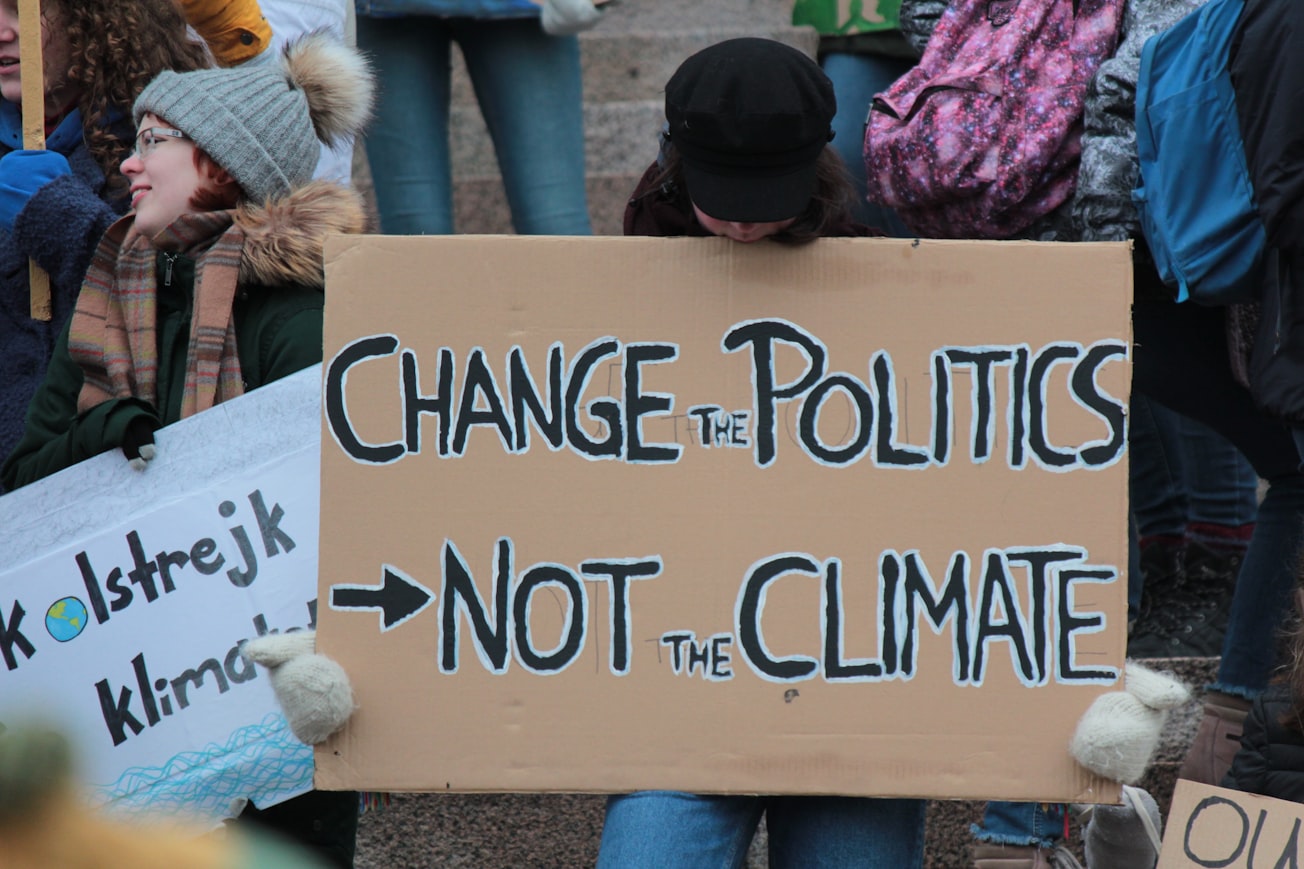What is it about?
Previously, expert opinions on "climate change politics" were based on the existence of international cooperation between countries. In this study, the authors propose a revaluation of ‘assets’, such as capital, labour, and natural resources, to better understand climate change politics. As climate change as well as policies related to its mitigation progress, the owners of ‘climate-forcing’ assets (CFAs) that accelerate climate change, such as oil fields, compete with holders of ‘climate-vulnerable’ assets (CVAs), such as coastal property, over the variable values of their assets. The authors identified several challenges that trail along with these ‘existential’ political dynamics. One of the major implications is the potential weakening of the economic harmony and transparency across nations. Countries may or may not choose to adopt policies, depending on their interests and benefits, jeopardising climate change activities.
Featured Image

Photo by Tania Malréchauffé on Unsplash
Why is it important?
Pro-climate policies will pressurise CFA owners to reduce carbon emissions, putting them at an economic disadvantage. CVA owners are also expected to witness a reduction in their property values as climate change worsens. Such adversities have led to asset owners converting their common interests into political activities that work in their favor. Owners now prefer the adoption of ‘defensive’ policies that focus on negotiating and claiming compensations instead of lowering carbon emissions. Along with economic issues, ideological and cultural elements also influence climate change mobilisation, according to the authors. Compensations for owners who are phased out of the carbon business are not considered and that new innovative methods are required to secure their responsibilities. KEY TAKEAWAY With rising confrontations over asset prioritisation, climate politics will soon turn existential. The perspective of asset revaluation, which may define the future of climate governance, can help us better understand these dynamics.
Read the Original
This page is a summary of: Asset Revaluation and the Existential Politics of Climate Change, International Organization, December 2020, Cambridge University Press,
DOI: 10.1017/s0020818320000296.
You can read the full text:
Resources
Contributors
Be the first to contribute to this page







